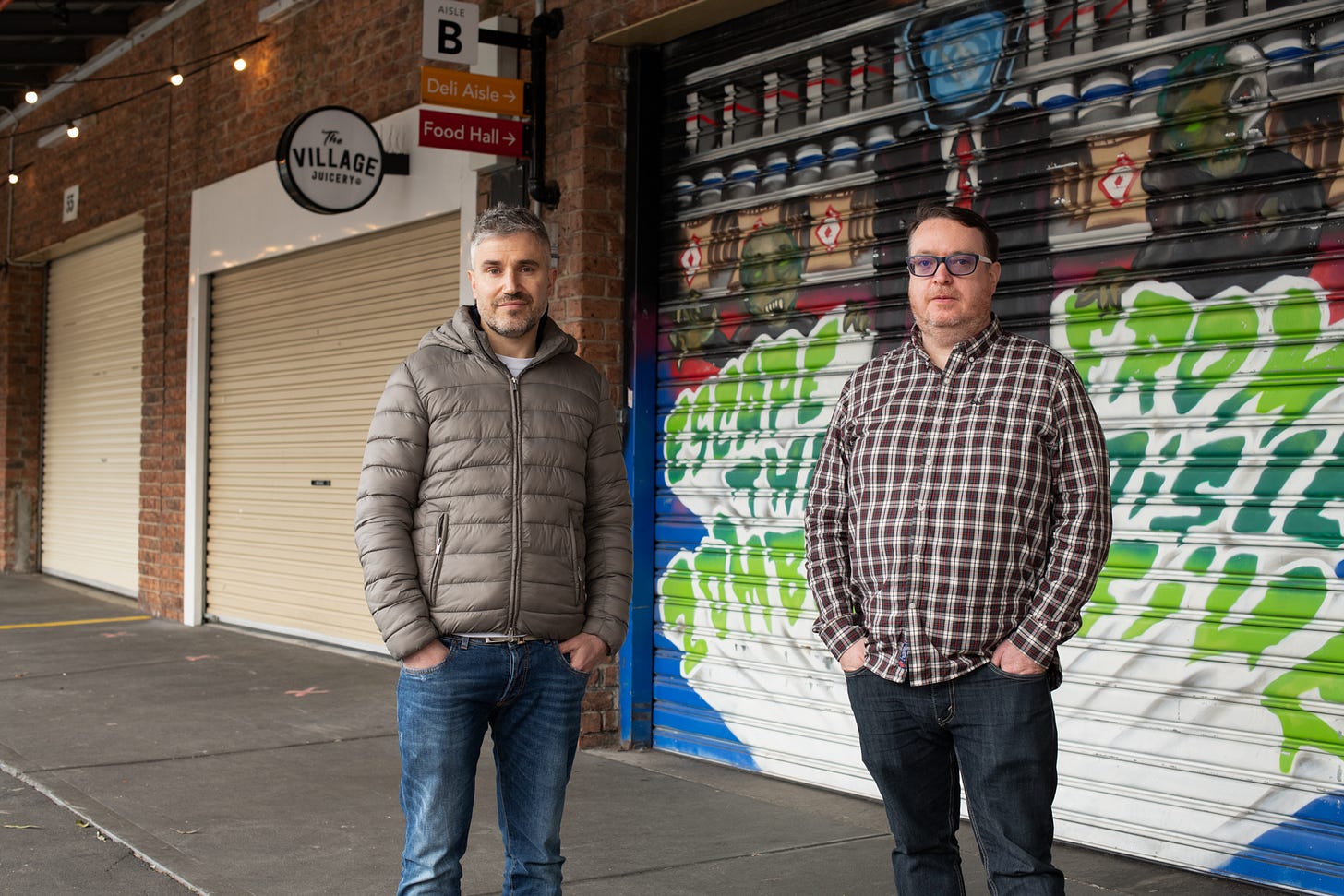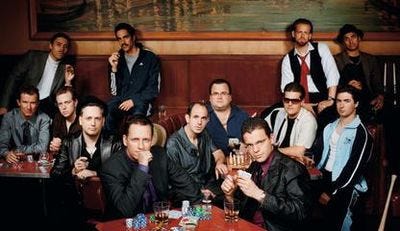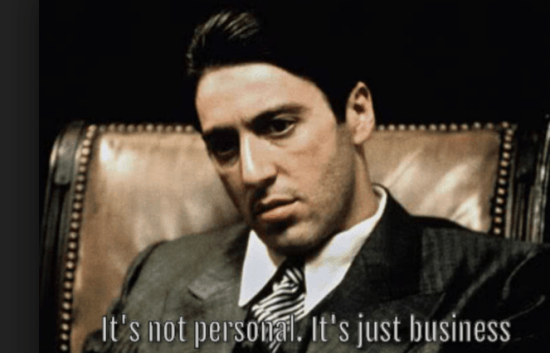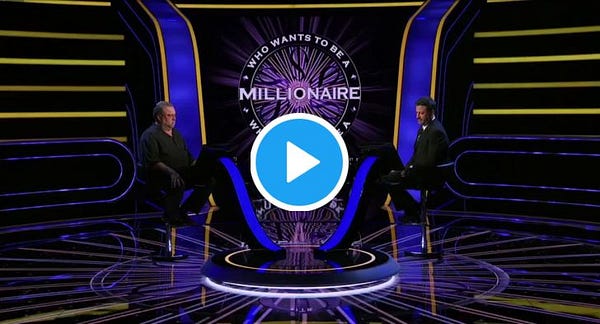Weekly Wrap #29: Pappardelle, People Moves and PayPal Mafia
Welcome to our Weekly Wrap, where we cut through the noise to bring you our favourite insights from the technology and startup world.
Please keep the great feedback coming. If you love the Weekly Wrap, share away.
Seen any interesting startups? Have any tips for the Weekly Wrap? Want to indulge our inner-journalists? Drop us a note.
The hospo-tech buffet
On Wednesday we went to our favourite Italian restaurant. We signed in after scanning a QR code on our phones, then scrolled through the menu. We ordered and paid with a few taps of a button. Then we ate delicious pappardelle in a carpark-turned-outdoor-dining-room.
For some, this experience is contactless bliss. For others it’s a tech-fuelled nightmare. Regardless, this the reality of dining out in 2020. And 2021. Maybe longer. And that’s good news for anyone in the business of hospitality tech.
Across Australia and NZ we’re seeing an increasing number of startups step up to the plate. Along the way, they’re tackling tech giants like Uber Eats, Deliveroo and DoorDash head on.
Shane Delia’s restaurant and food marketplace startup, Providoor became a staple of life for those of us craving a high-end restaurant experience during lockdown. What started as Delia’s personal project to ‘pandemic-proof’ his restaurant, Maha, has now grown to deliver over 230,000 meals to date. Providoor, which charges merchants 15% commission, has a target to process over AU$100 million in its first year of operations.
Mobi2Go, which offers a while label ordering platform and in-store kiosk solutions, saw a 300% increase in signups at the start of the pandemic. It continues on a hiring spree for its HQ in Wellington and offices across Australia and Canada.
Melbourne’s second lockdown has seen demand for HungryHungry explode. The startup provides contactless menu and ordering tech to more than 1,500 Aussie restaurants, bars and pubs. Use of the platform is up 500% since the first lockdown reprieve in June.
Cofounder Shannon Hautot explained to us that “the mindset of restaurant owners really changed after the second lockdown. They realised [a lockdown] isn’t just something that will happen once. They have to get ready for this new world”. Adelaide and Auckland’s latest cluster are yet another sobering reminder of that fact.
In fact, HungryHungry’s growth is surpassing all expectations to the extent that it may look to raise a Series A as early as March, following a $2 million Seed round recently. With sights on the UK as the first international expansion destination, Hautot believes that Australian hospitality tech is ahead of the game.
HungryHungry cofounders Mark Calabro and Shannon Hautot
Talk to any of these startups and you’ll quickly hear a theme that restaurants, many who operate on razor-thin profit margins, are fed up with high commission rates (in the realm of 30%) charged by the tech behemoths. Not only that, but they’re getting in the way of restaurants’ relationship with consumers.
“Everything we’re doing from now on is about fostering a great relationship between merchants and their customers,” explained Hautot. For example, HungryHungry are working on machine learning that will help merchants target their best customers and reward them to keep coming back, stay longer and ultimately spend more.
On the other side of the table are startups focussed delivery workers, who put their lives on the line to bring us food. In October alone, three food delivery riders were tragically killed.
Last week gig-worker insuretech startup Upcover launched across Australia - the first of its kind. Upcover aims to ensure every food delivery rider on the road has access to affordable insurance for serious injuries, broken bones, assault and COVID-19.
Just like the pandemic has changed our shopping habits, it will forever change our dining habits. Wouldn’t it be great to see Australasian startups dominate hospo-tech on the world stage?
But also, who knew QR codes would become so fundamental to our daily lives?!
Sage advice
This week we sat down with HungryHungry’s Shannon Hautot to discuss the future of hospitality. Being the highly-trained journalists that we are, the conversation quickly veered off topic. As an experienced founder (he and cofounder Mark Calabro founded their other business OrderMate nearly 21 years ago!), Hautot was full of sage advice:
On capital raising: Reach out directly to Partner-level VCs with a short, sharp message. The VC world is small. Once you make an in road with one investor, they’ll refer you on to others. You know when investors are interested when a 30 minute meeting turns into a 1.5 hour conversation. Be on the hunt for an investor who believes in what you’re doing and will help you achieve your growth goals.
On cofounders: A partnership won’t work without trust.
On offshore hires: HungryHungry has a small team in Manila. He’s found that Filipinos have an excellent work ethic and are similar to Australians in many ways. Hautot says the key to success is to truly treat overseas-based people as a part of your core team.
On preparing to scale: Lay the right foundations from the outset - document your values, vision and goals. It might not feel like it’s important at the time, but it’ll help save you from hiring the wrong people or chasing the wrong customers. Plus, if you’re going to grow your team rapidly, it pays to hire a great people experience and talent acquisition team early.
Paypal Mafia Shakedown
It’s been a big week for the PayPal Mafia - a group of former PayPal’ers who have gone to become the richest friends in the world after founding and investing in Tesla, LinkedIn, Palantir, SpaceX, Square, YouTube, Yelp and Yammer, to name a few.
Members of the PayPal Mafia on Fortune magazine. Elon Musk is notably absent - he has a well-documented dislike for the term and its implications.
SpaceX transported four astronauts to the International Space Station. This is the second time the launch system has been used to transport people. It was 100% autonomous from take off to dock! Think about that for a second.
Tesla will be added to the S&P 500, putting it in the same company as heavyweights like Apple, Microsoft and Berkshire Hathaway. Elon Musk's fortune jumped $US15 billion as a result of the news. He also tested positive for COVID-19.

“Consigliere” Max Levchin’s BNPL business, Affirm filed to go public. Listing in December, the company’s revenues continue to climb in the ecommerce boom - up 93% YoY to $509.5 million in FY20. It is also expanding into the crowded Australian BNPL market.
The “don” Peter Thiel continues to see Palinitir stock rise after posting its first quarterly earnings report as a public company last week.
Thiel’s Founders Fund (other mafioso Partners are Keith Rabois, Luke Nosek and Ken Howery) is also an early investor in Airbnb, which unveiled paperwork for its December IPO. The float will value the company at more than $30 billion.
Keith Rabois’ departure from the motherland (the Bay area) hit headlines. Rabios is a prolific investor. Seven of his investee companies have/will list in 2020, including the big dogs - Airbnb, DoorDash, Affirm and OpenDoor.
Rapid fire: News that caught our eye this week 🧐
Australia & NZ
Nuix will list on the ASX on 4 December with a market cap of AU$1.8 billion, if successful. That’s nine times its projected revenue for 2021 of $193.5 million. Nuix's data analytics engine is used around the world by around 1,000 customers to manage cyber security, risk and compliance threats, and investigate fraud. Its software can process over 1000 different file types by trawling through emails and attachments. You may remember Nuix was used as a part of the Panama Papers investigation.
Lots of big people moves in Aussie tech:
Nick Molnar is resuming his CEO role at Afterpay, alongside Anthony Eisen. The company also launched a loyalty program, Pulse, this week which rewards Afterpay customers who pay for their purchases on time and spend responsibly. This comes as ASIC released its report, finding that:
one in five buy now, pay later users is missing payments
half of users aged between 18 to 29 cut back on essential items to make repayments and 15% of users (half under 29) took out an additional loan to pay for the services
more than 1.1 million transactions in 2019 incurred multiple missed payment fees.
Former AMP Bank boss, Sally Bruce, is moving Amps. She’s joining Culture Amp as its COO.
Michael Ilczynski is Redbubble’s next CEO. Ilczynski is SEEK Mafia - he drove rapid growth there for over a decade. RedBubble has seen stellar growth in 2020, massively benefiting its share price. We’re excited to see how it fares under Ilczynski’s leadership.
Meet Aussie VCs. On December 9th Australia’s most active tech VCs will come together for an Open Office Hours virtual event. If you’re a founder who is looking to ask advice, test your pitch, create connections or simply find out about the fundraising process, apply here now.
It was International Women’s Entrepreneurship Day on Thursday. Kochies Business Builders featured nine awesome women making a difference.
Great Twitter thread by Alan Jones. Also available in long form.

Who Gives A Crap is TV famous:
ANZ capital raising
Aspiring neobank Alex raised AU$10 million. Founded by former Suncorp innovation head Simon Beitz, Alex plans to be a lending-focused neobank, and is also working on getting approval to take deposits.
Remotely raised NZ$2.5 million to make virtual meetings game-like. The round was led by Icehouse Ventures, with support from New Zealand Growth Capital Partners (formerly NZVIF). Remotely brings workers together as animated avatars who meet in simulated environments away from the office and is an alternative to conventional video conferencing tools. Hard to rank for SEO with a name like ‘Remotely’.
Non-alcoholic beer company Heaps Normal raised AU$1.3 million. Non-alcoholic beer is one of the fastest growing drinks categories in Australia. The Startmate alumni is based in Canberra and outsources beer production. The beer is sold online and at 170 outlets across Australia. Also, check out their awesome stubby holder collab with Isol-Aid - an online music festival, where artists play and stream 20-minute sets every weekend.
Marketplacer raised AU$20 million, ahead of plans to list on the ASX, likely in 2021. Founded in Melbourne in 2012, Marketplacer provides retailers a marketplace platform to scale and grow their businesses. Marketplacer has over 70 customers, including Providoor, Petstock, Bob Jane T-Marts, and Myer. Revenue has increased by 110 percent in the last year.
Around the world (all in USD)
Tis the season to float. Affirm, Airbnb and DoorDash and Roblox all filed to go public. They will list in December.
Child-friendly gaming company, Roblox has more than 31.1 million daily active users and nearly seven million active developers.
According to its S-1, DoorDash’s US market share has grown from 17% in January 2018 to 50% by October 2020. It had 543 million orders in September, compared with 181 million in the same period last year. Here in Australia, DoorDash provides a one hour last mile delivery service for retailers including the Reject Shop and Hairhouse, in addition to its core food delivery business.

Amazon launched a digital pharmacy with discounts for paying U.S. Prime members. Customers can add their insurance information, manage prescriptions, and choose payment options all through the service. Users are also given “Friendly and knowledgeable pharmacists are available 24/7 to answer questions about medications.” In August, Amazon launched Halo, a fitness tracker and personal health and wellness monitoring and advice service.
Online pharmacy services are projected to hit revenues of $131 billion by 2025 worldwide. And that’s before you factor in the value of all that juicy customer data:
Taken together, a power Amazon Prime user who shops at Whole Foods, uses Halo and gets their prescriptions filled through Amazon Pharmacy is giving the company perhaps the most complete insight into their health that’s available.
Bezos Expeditions—the personal VC fund of Amazon CEO Jeff Bezos—invested in a $30 million Series B for African cross-border fintech startup Chipper Cash.
Chinese VC/PE is so hot right now. Yunfeng Capital, a Chinese private equity firm co-founded by Jack Ma is in the process of raising $3 billion, and is one of at least four well-known China-focused firms to raise $1 billion or more this quarter.
Ex-Google/Yahoo powerhouse Marisa Mayer launched a new startup - Sunshine. Sunshine is building a suite of services to solve the common pain points that modern technology hasn’t addressed:
We’re creating technology to address practical, everyday pain points in the basic, foundational tools that connect us with the people we care about. Ultimately, Sunshine will remove complexity in things like contact management, scheduling, event organization, and group communication so you can spend time more meaningfully.
The first product to launch is Sunshine Contacts, essentially a personal CRM.
Activity and fitness tracking platform Strava raised $110 million, led by TCV and Sequoia. Strava has 70 million members, after adding more than 2 million new “athletes” (how Strava refers to its users) per month in 2020. Earlier this year, the company debuted a new Strava Metro service aggregating the data it collects from its users to provide city planners and transportation managers with data about how people get around.
Twitter launched a Stories feature. It’s called “Fleets”. *eye roll*

That’s a wrap! We hope you enjoyed it.
Gavin, Bex and the team at Ignition Lane
p.s. Don’t miss our Blackbird Giants webinar session on Tuesday - ‘Sales as a Science’. Our very own sales master Nikki Brown will be sharing her secrets on how to get a sales machine humming. Tues 24 November, 8am. Register for free here. Sales as a Science - it's the new SaaS!
We love feedback - if you have any or want to continue the conversation, please reach out.
Watch Gavin live on AusBiz at 2pm on Mondays, when he opens the Startup Hour of Power.








